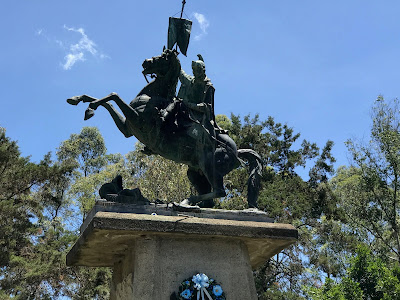Recognizing Jesus’ Authority
Scripture:
Mark 1:21 They went to Capernaum; and when the sabbath came, he entered the synagogue and taught. 22 They were astounded at his teaching, for he taught them as one having authority, and not as the scribes. 23 Just then there was in their synagogue a man with an unclean spirit, 24 and he cried out, “What have you to do with us, Jesus of Nazareth? Have you come to destroy us? I know who you are, the Holy One of God.” 25 But Jesus rebuked him, saying, “Be silent, and come out of him!” 26 And the unclean spirit, convulsing him and crying with a loud voice, came out of him. 27 They were all amazed, and they kept on asking one another, “What is this? A new teaching—with authority! He commands even the unclean spirits, and they obey him.” 28 At once his fame began to spread throughout the surrounding region of Galilee.
Observation:
As this first chapter of Mark continues to unfold we discover that the author wants us to understand who Jesus truly is, and what kind of power and authority is under his control. This is a description of a first day of ministry in the city of Capernaeum. Jesus is there with his new disciples, and on the sabbath they go to the synagogue. It was not uncommon for traveling rabbis to teach an so Jesus took his turn that day.
Interestingly, the people are astounded by the authority with which Jesus teaches. What they observe is that Jesus’ preaching disturbs people, or creates a sense of conviction. This is the fishing to which Jesus had called the four fishermen-disciples and they were to take note of this authority. This word “authority” is spoken at the beginning and the end of this passage, creating a sort of bracket for what happens in between. What we find sandwiched in the middle is a clear understanding of the authority which we find in Jesus.
The bracket begins with a person in the synagogue who has an unclean spirit. This is not someone with mental illness because the description clearly helps us catch a glimpse of a cosmic battle on display. This is a reminder that we are engaged in a battle far greater than anything seem on the human level. The demon declares that Jesus is “the Holy One of God.” This declaration, made out of fear, is clearly in contrast with what we later hear from Peter who declares out of love, that Jesus is the Son of God. The spoken words of Christ bring about the submission of the unclean spirit. At the same time, the disciples presence with Christ, “the Holy One of God” signals the fact that they are now identified with and are a part of God’s holy people. “Those around Jesus, then, are being re-created as the new holy people of God, with Jesus, the Holy One, in their midst.” (Brower, NBBC, Mark: A Commentary in the Wesleyan Tradition)
From the speaking of his words in teaching, to the speaking of his words in healing, clearly there is something different about this man. The people recognize that he has an authority they have never before encountered. As a result, the news about him begins to spread throughout the entire region.
Application:
A true encounter with Jesus comes with recognition of his authority. It is our response to that authority which changes everything. The demon responded out of fear, but later we will see Peter’s response out of love. That love led to obedience in faith and radically changed the man he had been, into the leader he would become.
Christ’s authority lies in embracing who he is — the holy one of God. When we recognize that authority, we also recognize Jesus’ holiness. You cannot separate holiness from the nature of Jesus, for he is holy, through and through. Submission to his authority is an invitation to nearness, to be found in the presence of the one who is holy. We then become participants with Jesus, on his mission, as a result of us becoming a part of God’s holy people. The call to holiness is not for a select few, but for all who willingly and out of love recognize the authority of Jesus.
For those who try to live as “Christians” without recognizing the authority of Christ we discover a dire warning. The battle in the cosmic realm is real and we as humans are powerless in the face of the enemy of evil. When we deny the existence of evil we become complacent and fodder for those who would want to prey on us. When the powers of evil recognize the authority of Christ, even more should God’s people. However, to recognize the authority of Christ is to submit to that authority, and that makes many uncomfortable. To recognize a divine authority in our lives means that we cannot just simply do everything that we want, or that which makes us feel good. There is a higher authority to whom we are called to be accountable.
Preaching without the affirmation of the divine authority in Christ is dangerous for it may be unleashing and empowering the enemy. Every follower of Christ ought to stop and take inventory of their lives to determine whether there is any part of life that is being held back from the authority of Christ. Only in this way are we able to participate with Christ and to become new creation, God’s holy people.
Prayer:
Lord, I want to live in submission to you and your authority in my life and in all of creation. Amen.

Comments
Post a Comment